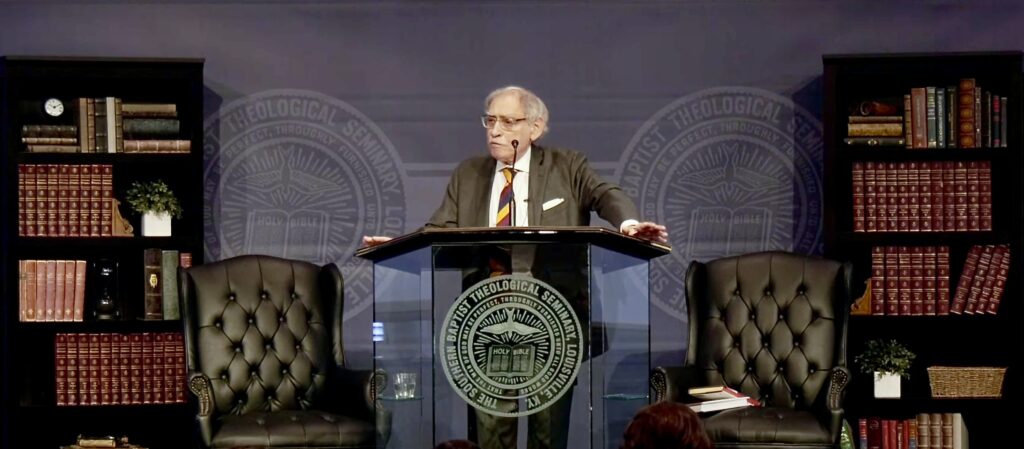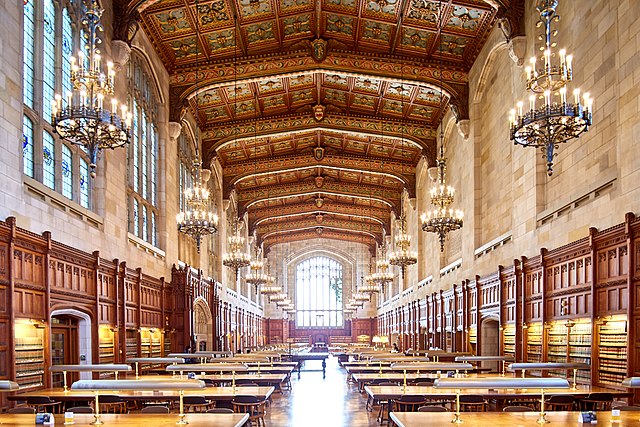Video Recordings of the Norton Lectures Delivered by JWI Co-Director Prof. Hadley Arkes at the Southern Baptist Theological Seminary, October 8-9, 2024.

Lecture I:
The Enduring Rediscovery: The Polis as a Moral Association
Lecture II:
On Aristotle and Political Science as the “Architectonic Science”
Lecture III:
The American Founding and Natural Theology – And a Guide for the Perplexed Judge
“The Southern Baptist Theological Seminary hosted renowned scholar and public intellectual Hadley Arkes for this year’s Norton Lecture Series, October 8–9. Arkes is the Edward N. Ney Professor of Jurisprudence and American Institutions emeritus at Amherst College and founding director of the James Wilson Institute on Natural Rights and the American Founding. His books include Mere Natural Law, First Things: An Inquiry into the First Principles of Morals and Justice, and Natural Rights and the Right to Choose.
“Ideas have consequences, and ideas can change lives,” said Andrew Walker, ethics professor at Southern Seminary. “Arkes integrates theology with practice. He not only has all of the right ideas but also a love for the law and advocacy that is not a mere intellectual exercise.”
The title of the lecture series was “The Pervasive Moral Logic of the Law: A Reawakening.” Arkes emphasized the importance of considering the ideas which should ground our politics. “The test of political and legal moral judgment is if a man can give reasons for his actions,” Arkes said. “Can he explain the principles that connect what he does this week, last week, and the weeks to come?”
According to Arkes, political science is the highest science that applies the universal principles of right and wrong to everyday life and builds society. “At its best,” Arkes said, “Political science is the science of reflecting on the principles of justice, the nature of the just political order, and the things we are justified in imposing on people with the force of the law.”
For Arkes, the first principles of natural law should create the moral foundation of all political order. Natural law is discoverable through reason and establishes the universal and basic principles of right and wrong. “The good or the right is that which everyone at to do, the wrong is that which everyone should refrain from doing. The good is always more desirable, and knowledge of the ends for right and wrong is a higher good. These principles are universal notions of right and wrong.”
Arkes called for a reawakening of the framework of ideas that grounded the American Constitution. He criticized conservative judges who based their decisions on only the text of the Constitution without the moral principles of the natural law that were foundational to its origins. “Even conservative judges are averse to moving outside the text of the Constitution,” Arkes said. “They become shy at appealing to the most objective truths grounded in nature that can provide the most invincible ground for their judgments.”
Arkes also spent time with PhD students at Southern Seminary at the 1892 Club, where he discussed his faith and scholarship more. Walker believes the lectures by Arkes are the exact kind of arguments today’s students need to confront the reigning ideologies.
“Dr. Arkes’ lectures provided students an opportunity to challenge the legal orthodoxies they may not have even known were recent approaches to the law,” Walker said. ‘Our legal establishment is awash in positivism, which is the idea that law can be stripped of all legal concerns. The lectures demonstrated the necessity for the logic of morality to inform the logic of law. Such an idea is considered radical in today’s legal academy. But for the Christian, it is a simple reminder that law does not serve itself. Law serves the common good by being grounded in a sound account of first principles, the first of which is the idea of a Divine Law-giver.‘”
— Travis Hearne, The Southern Baptist Theological Seminary







